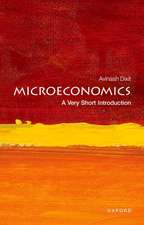Organizational Capital: The Path to Higher Productivity and Well-Being
Autor John F. Tomeren Limba Engleză Hardback – 31 oct 1987
Tomer integrates economic analysis with behavioral and humanistic perspectives into a discussion of a new economic concept: organizational capital. The volume fills an important void in the economic literature and provides additional insights into how internal organizational structures and relationships affect economic as well as social outcomes. . . . All in all, must reading for both economic scholars and behaviorists. "Choice"
Traditionally, internal organizational relationships have not been linked with the orthodox theory of the firm or with explanations for economic growth. "Organizational Capital" integrates organizational behavior with economic theory and offers a new unifying economic concept: organizational capital. Tomer shows how organizational capital contributes to economic growth, behavior, and the productivity of the firm. Companies investing in organizational capital are creating better functioning organizations, ones with improved structures and cultures. These improvements are embodied in the organization's relationships, its members, and its repositories of information. The author also explains how the organization can function as a guide for formulating better governmental policies with respect to economic growth. Moreover, he believes the concept of organizational capital can help us understand how institutional arrangements contribute to economic as well as social outcomes. This book will help business professionals understand how the features of organizations relate to organizational performance and productivity. It facilitates understanding of the organizational reasons for the successes of leading Japanese companies, Mondragon cooperatives, and excellent U.S. companies.
Preț: 412.61 lei
Preț vechi: 543.80 lei
-24% Nou
78.95€ • 82.44$ • 65.20£
Carte tipărită la comandă
Livrare economică 15-29 aprilie
Specificații
ISBN-10: 027592582X
Pagini: 205
Dimensiuni: 156 x 234 x 13 mm
Greutate: 0.47 kg
Editura: Praeger
Descriere
Traditionally, internal organizational relationships have not been linked with the orthodox theory of the firm or with explanations for economic growth. Organizational Capital integrates organizational behavior with economic theory and offers a new unifying economic concept: organizational capital. Tomer shows how organizational capital contributes to economic growth, behavior, and the productivity of the firm. Companies investing in organizational capital are creating better functioning organizations, ones with improved structures and cultures. These improvements are embodied in the organization's relationships, its members, and its repositories of information. The author also explains how the organization can function as a guide for formulating better governmental policies with respect to economic growth. Moreover, he believes the concept of organizational capital can help us understand how institutional arrangements contribute to economic as well as social outcomes. This book will help business professionals understand how the features of organizations relate to organizational performance and productivity. It facilitates understanding of the organizational reasons for the successes of leading Japanese companies, Mondragon cooperatives, and excellent U.S. companies.














